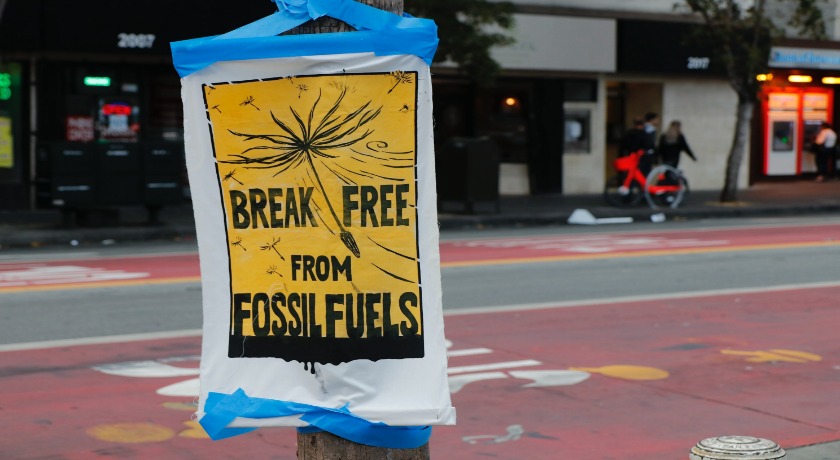 Two United Reformed Church (URC) Synods have joined forces with 45 faith institutions from 21 countries to announce their divestment from fossil fuels.
Two United Reformed Church (URC) Synods have joined forces with 45 faith institutions from 21 countries to announce their divestment from fossil fuels.
From the UK, participating institutions included the URC’s Southern and Thames North Synods, five Catholic orders, and Anglican and Methodist churches. The full list of participating institutions is here.
The announcement, on 16 November, coincided with the fifth anniversary of the Paris Agreement on climate change.
Speaking about how the URC Southern Synod has transferred its reserves into a new fund that excludes the oil, gas, and coal industries, the Revd Bridget Banks, Southern Synod Moderator, said: “We are pleased that we have been able to achieve this during the Covid lockdown. It’s an issue that we have been wrestling with for several years. It is good that we have now brought our investments into line with our commitment to reduce the carbon footprint of the Synod. Many of our local congregations are also exploring how to line up the ways they do things with their belief that this world is God’s world, and God calls us to take care of it.”
Faith leaders’ action puts pressure on government leaders, and their commitment to clean energy stands in stark contrast with many governments’ failure to deliver ambitious energy strategies.
The UK government faces increasing pressure to demonstrate global leadership on the climate crisis ahead of the UN climate talks (COP26) taking place in Glasgow in November 2021.
Earlier this month, 70 organisations launched The Climate Coalition’s 10 Point Plan for a Green, Healthy and Fair Recovery. This includes a call for the UK government to end all public support for fossil fuels overseas and support countries to leapfrog to renewable and efficient energy.
Recently, in preparation for the G20 meeting that begins on 21 November, environment ministers released a statement that was widely seen as rubber-stamping fossil fuel bailouts, and removed a long-standing G20 call for an end to fossil fuel subsidies.
With renewables in the US now growing at a faster pace than fossil fuels, institutional investors are increasingly moving toward sustainable investments in the clean energy economy. Faith investors are an important part of this movement, constituting the single-largest source of divestment in the world, making up one-third of all commitments.
Pressure from faith investors and others has exposed the inherent weakness of the fossil fuel industry, with Royal Dutch Shell now citing divestment as a material risk to its business.
This week, from 19-21 November, Pope Francis has convened the ‘Economy of Francesco’, an online conference involving more than 1,000 young adults, which will explore innovative ways of shaping a sustainable economy. This conference builds on an announcement in June, when the Vatican recommended in its first-ever operational guidelines on ecology that all Catholic organisations divest from fossil fuels.
Monday’s divestment announcement means that more than 400 religious institutions have now committed to divest.
James Buchanan, Bright Now Campaign Manager at Operation Noah, said: “It is hugely encouraging that so many faith institutions have stopped investing in the fossil fuel industry. Churches need to divest from fossil fuel companies as a practical response to the climate emergency, ahead of COP26 next year. The UK government urgently needs to end all public support for fossil fuels at home and overseas.”
The full list of participating institutions that announced divestment in November 2020 can be found here.
Published: 19 November 2020
Image: Eelco Böhtlingk/Unsplash




